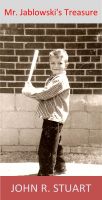I've just finished the third edit of my new novel- REBELS
AND DESPERADOS which represents the second critical stage in my novel’s life. I suspect there is nothing more tedious and
boring in the entire world than this process, however, it is vital to producing
a good- enjoyable story. Now I don’t pretend to be a professional editor,
however a degree in English Literature from the University of Toronto is a good
starting point.
My current process for editing is three fold:
Edit one consists
of a fast re-read to insure the story flows, the character details are correct,
the timelines are true and it basically makes sense for the reader.
Edit two consist of a detailed examination of the books formatting in word. This is a spell and grammar check as well as a review of the standard formatting. Formatting errors in an eBook will present the reader with a poor reading experience, and may cause trouble when the book is submitted to your eBook publisher. Tedious at its best.
Edit three is a page by page re-read of the entire novel, start to finish. At this point I again check spelling, grammar, and word selection. It’s an opportunity to polish and tweak the story as well. I edit every page twice and this process is a true time eater!
Edit two consist of a detailed examination of the books formatting in word. This is a spell and grammar check as well as a review of the standard formatting. Formatting errors in an eBook will present the reader with a poor reading experience, and may cause trouble when the book is submitted to your eBook publisher. Tedious at its best.
Edit three is a page by page re-read of the entire novel, start to finish. At this point I again check spelling, grammar, and word selection. It’s an opportunity to polish and tweak the story as well. I edit every page twice and this process is a true time eater!
I finished the third stage on July 1st and then
it was time to send it off to my editor for his review. For REBELS AND
DESPERADOS I’m very lucky to have a good editor, a friend who was an English
teacher at a U.S. college, so the edit will be good!
Once he finishes his review it comes back to me for my
re-work based upon his edits. Now I’m of the opinion that a good editor will
fix any spelling or grammatical errors, identify story line issues and comment
on the quality of the story. He may also decide to critique the way the story
is written, basically what style do I write in. Is it suitable etc, etc?
I hope in this situation I will not require significant
re-writes. Depending upon what the editor suggests I hope to be ready to correct
and publish REBELS AND DESPERADOS by October 2013.
But ultimately I have the final decision as to what the
story is and how it’s told. After all I am the writer.
So, where am I going with this? It’s like a lottery to get
published.
I have probably read upwards of 1000 works of fiction during
my life, but in order to find those 1000 truly worthy reads I've started to
read many, many more books. It’s likely in the range of 5-10 thousand
books. Most look of these books have a great
cover, look interesting and have promise, but after 50 pages or so I put them
down- unfinished. Why?
Well, some are just plain terrible, others are well written
but the subject matter is boring, it might be very well written but the subject
matter isn't strong enough to keep my attention. Where am I going with this, well the point
I’m making is that there are thousands of stories available, as standard
printed books or as eBooks- but they just weren't right for me, and the
publishing business is much the same.
It’s like a lottery to get published. At some point every one
of the books I've rejected has caught the attention of an agent or publisher. Someone somewhere thought it was brilliant and
spent the time and money to publish it. I suspect on any given day several hundred
book proposals will arrive on a publisher’s desk.
Why are some accepted and others rejected? Good question?
When I originally tried to publish GETTYSBURG REDUX the old
fashioned way, I sent my book proposal to approximately 100 publishers. Some
had the courtesy to send me a reply, must did not. Universally their response
was negative! Did this mean my novel was bad, not necessarily, they may have
failed to see the potential in my work, or perhaps it wasn't the flavor of the day?
They may have seen merit in the story but felt it wasn't commercially viable. Perhaps
the subject matter and story-line were not something they were interested in.
Maybe they had a bad day or had no interest in alternative fiction; never the
less they declined my book proposal.
Here are some examples of successful authors that had
trouble getting published:
Margaret Mitchell- GONE WITH THE WIND was rejected by dozens
of publishers
J.K Rowling - HARRY POTTER
Louis L’Amour received approx. 200 rejections before his
first work was published
C.S Lewis is reputed to have received in the range of 800
rejection letters
Agents and publishers get it wrong all the time. There are
many successful authors, with millions of sales- and I won’t list any of them here,
but these are books I found to be unreadable. They Just didn't meet my needs as
a reader.
So getting a book published by a large publisher is akin to
winning the lottery, the chances are significantly stacked against a new and
unknown author.
Just keep trying - I know I will!
